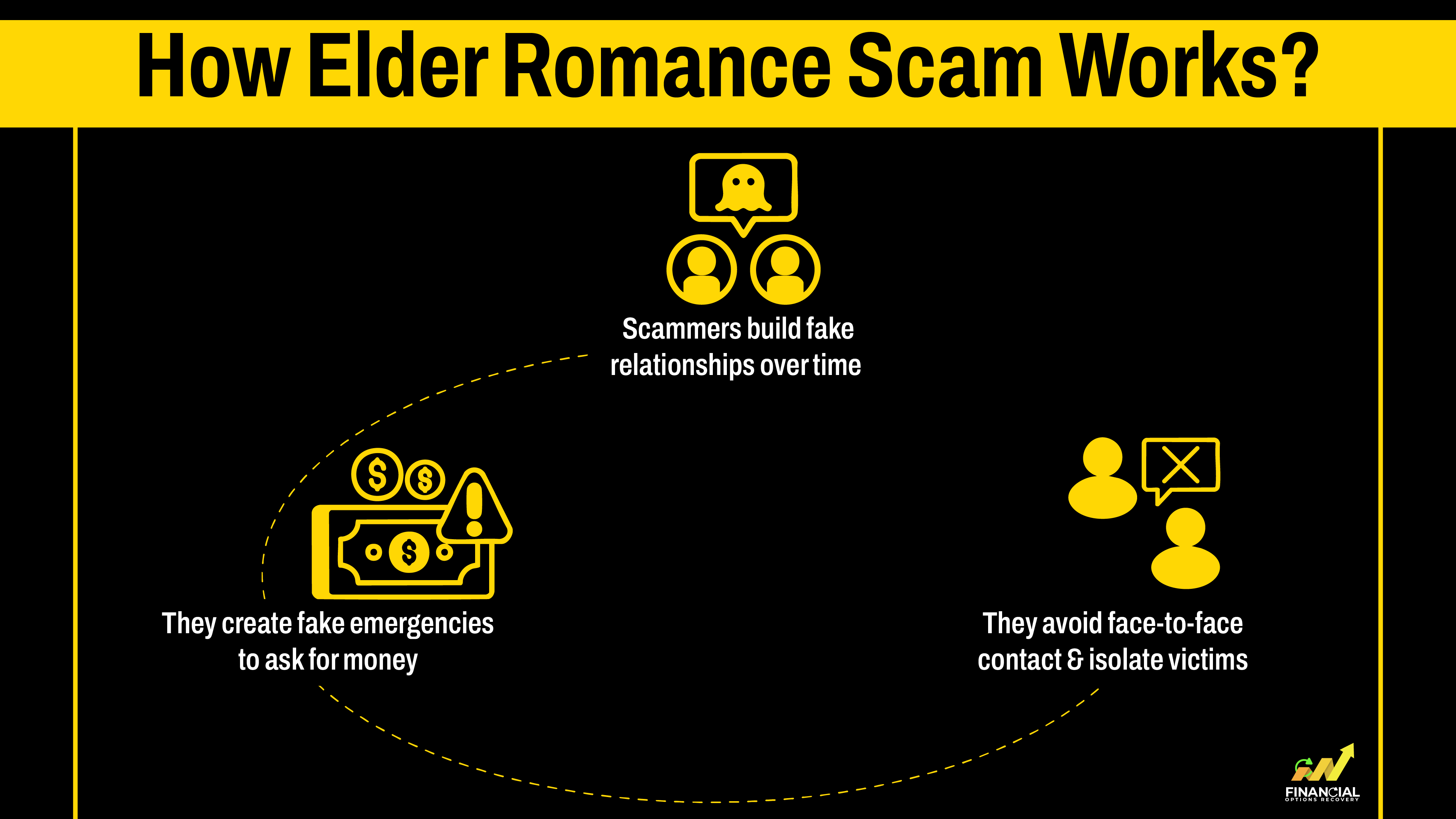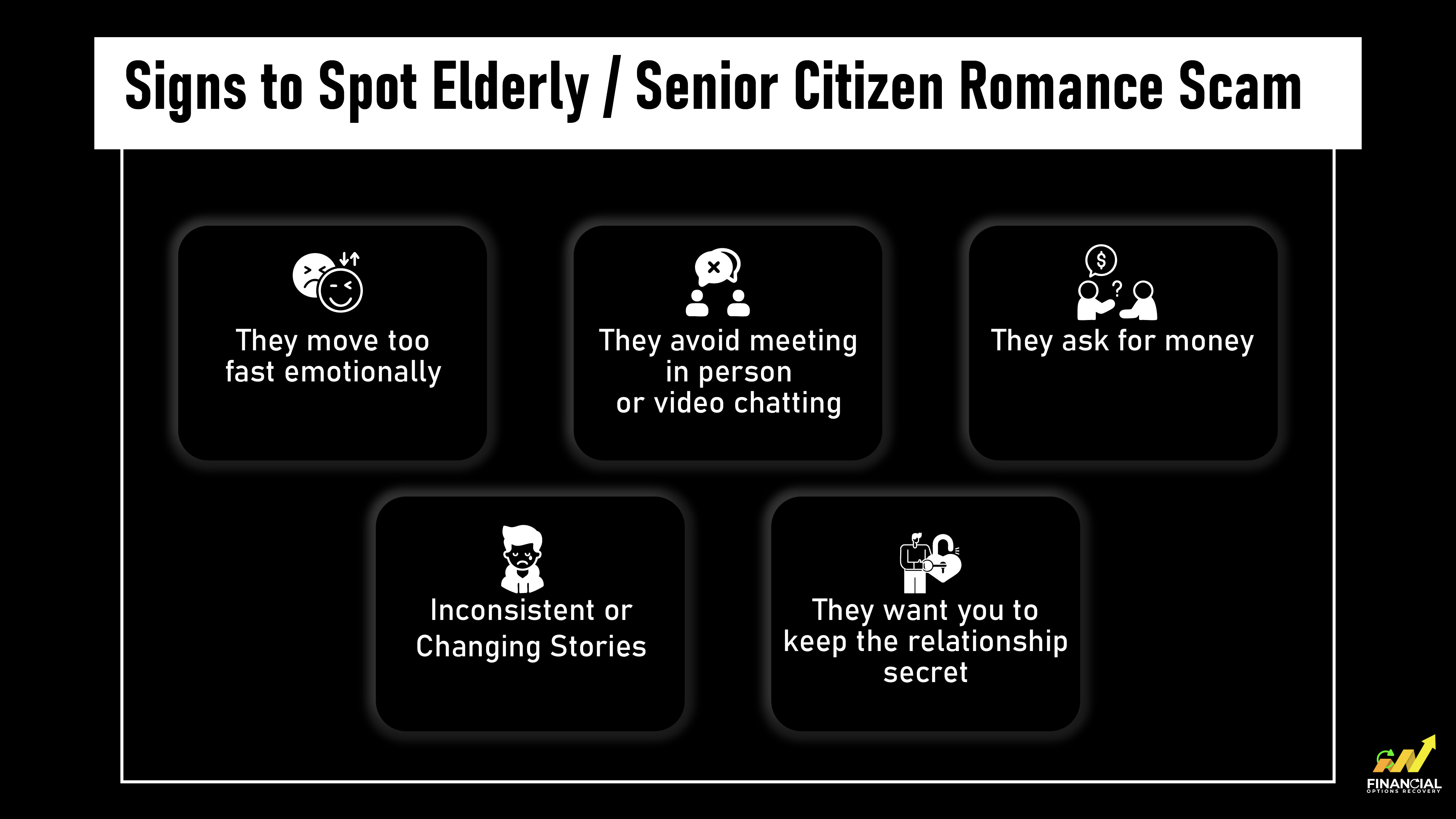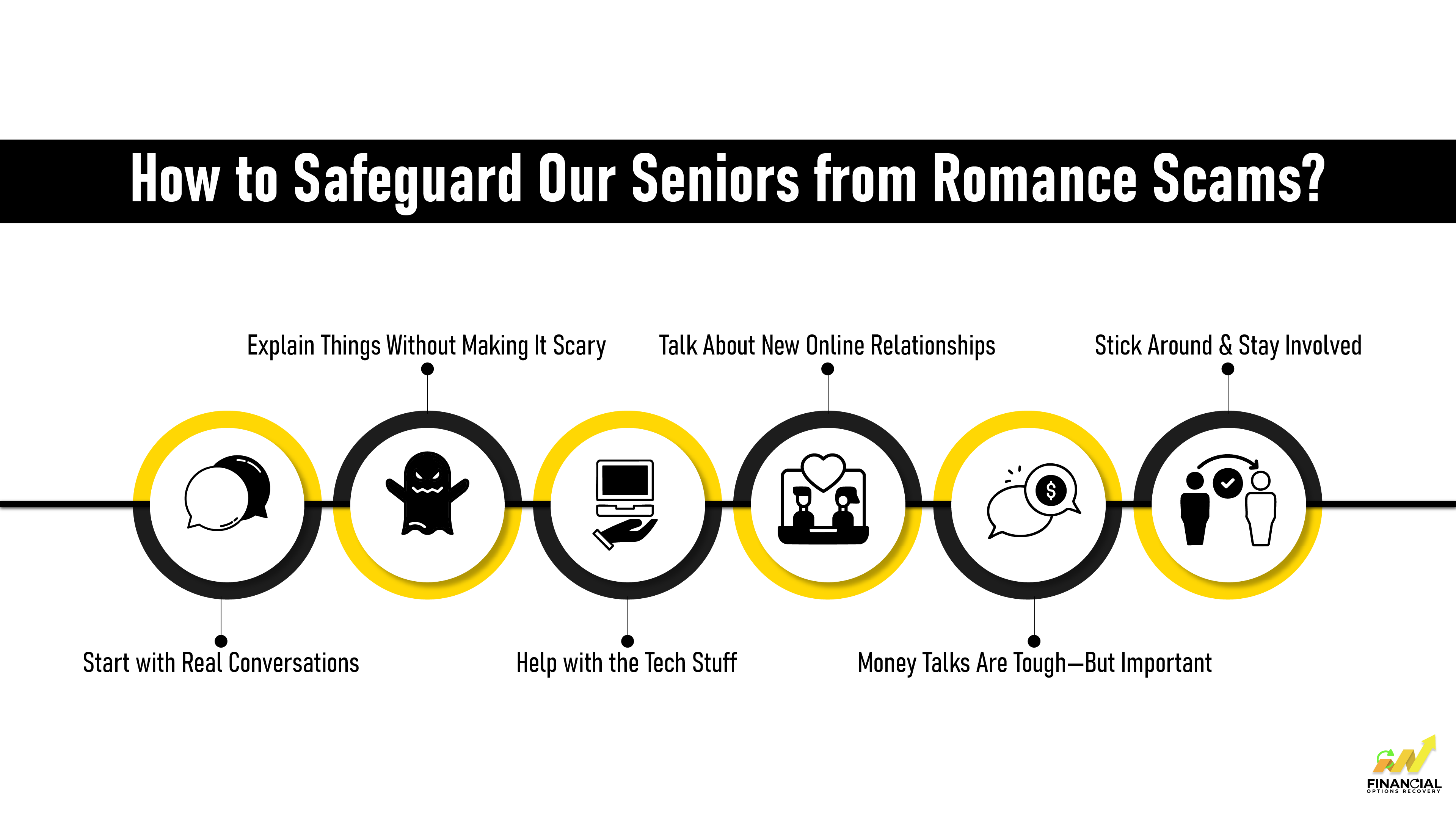
Table of Contents
Online relationships may bring comfort to elderly people, yet they also pose grave risks. Romance scams of older adults have been increasingly on the rise in recent years. They take away money, but they also damage trust, cause serious emotional harm, and in some cases drive victims apart from their own families.
An understanding of how these scams work is a key part of prevention. Being able to identify the signs early and knowing who to turn to can save seniors from financial loss, as well as emotional damage.
In this blog, we will describe why elders are more likely to fall for these scams, give examples of what the scams may include, and suggest steps we can take to protect our loved ones.
Loneliness is one of the primary reasons elderly people become targets of romance scams. Seniors are often isolated because they have lost their partners, have family that resides far away, or have mobility issues. Web pages and social media provide the easiest means to meet new individuals, reciprocate value, and escape loneliness.
Unfortunately, scammers know this too. Scammers target seniors intentionally because they tend to be lonely and already possess financial means in the form of life-long savings. These aspects turn them into coveted targets for fraud.
It's not all about money; trust has a lot to do with it. Older people were brought up during the days when communities were tight-knit and people were largely more trusting. Coupled with less experience in managing online threats, this trusting mindset can make it simple for fraudsters to take advantage of and scam them.
Most scams begin when someone sends a message on a dating site, social network, or even through email. Scammers will use attractive images that they may have stolen to make a fake profile. Then, it takes weeks or months for the relationship to develop. They know how to use kind words and how to make you melt.

Once the victim becomes emotionally invested, the scammer creates a sudden crisis, like a medical bill, missing luggage during travel, or financial trouble for their company. They might not demand much money to start with, but they give you one reason after another to transfer more. Because they trust the person, victims believe they owe them and pay by sending thousands of dollars.
Usually, when someone tries to meet in person or over video, the scammer will come up with excuses about where they are. They also discourage the victim from talking about the relationship with others, increasing isolation and making it even harder to recognize the scam.
What makes these scams cruel is the intimate nature of their effects. Victims do not simply lose funds; they lose their financial safety, as well as the security and trust that society has in individuals.
Imagine the painful situation of thinking you've found your soulmate. But later they found out that it was all a lie. For many seniors, the uncomfortable realization can cause feelings of embarrassment or shame, which might make someone withdraw from social situations or feel depressed.
Financially, some lose lifelong savings, the money they had for retirement, or end up starting new debts for the scammer. It can make their life harder and expose them to other money problems.
Sometimes it’s tricky to realize when things are wrong, because emotions can make things seem better online. Fortunately, some common signs can help you recognize a romance scam before it becomes serious.

If these signs start to appear, take a moment and ask for feedback from a trustworthy person. For a detailed breakdown of how romance scams work, common tactics, and steps for prevention, refer to our complete guide on romance scams.
Preventing these scams takes a mix of education, communication, and practical steps:

Regardless of the situation, the victim is never in the wrong. Romance scammers are masters at establishing trust and emotional bonds that seem real. The techniques are calculated to exploit even the most guarded individuals.
Emotional support is the top priority. Scammers make people feel ashamed, isolated, or blamed by others. Provide a non-judgmental, safe environment for the individual to verbalize their feelings. Patiently listening and demonstrating concern can be a big help in their recovery.
Once the emotional damage is dealt with, it's necessary to take practical action such as,
These steps can prevent the scammer from victimizing others and can also help recover stolen assets. When a substantial financial loss has been suffered or the scam involves cryptocurrency, asking the help of experts like Financial Options Recovery, specializing in scam investigation, can increase the possibility of tracking and recovering funds.
Many older adults fall victim to romance scams because their natural need for connection and trust is exploited. By staying informed and paying attention, we can help protect them from such harm.
Regular contact can make a big difference. Encourage open conversations about new connections they make online, and create an environment where they feel comfortable sharing concerns without fear of judgment.
Staying aware of current scam tactics and looking out for one another helps prevent these crimes from breaking lives apart. Above all, remind the older adults in your life that they are valued, respected, and never alone.
For those who have already been affected, professional guidance can provide both emotional support and practical steps toward financial recovery.
Older adults often face loneliness and isolation, making them more trusting and eager for companionship. Their lack of internet experience and financial savings also make them prime targets.
Scammers create fake profiles, build emotional trust over weeks or months, and then ask for money, citing emergencies, avoiding in-person meetings, and encouraging secrecy.
Fast emotional attachment, avoiding video or in-person meetings, inconsistent stories, secretive behavior, and requests for money are key warning signs.
Open conversations, gentle education about scams, tech support with privacy settings, and ongoing emotional support can help seniors stay safe online.
Offer emotional support without blame, help them report the scam to authorities like the FTC, and encourage them to stay connected with trusted friends and family.